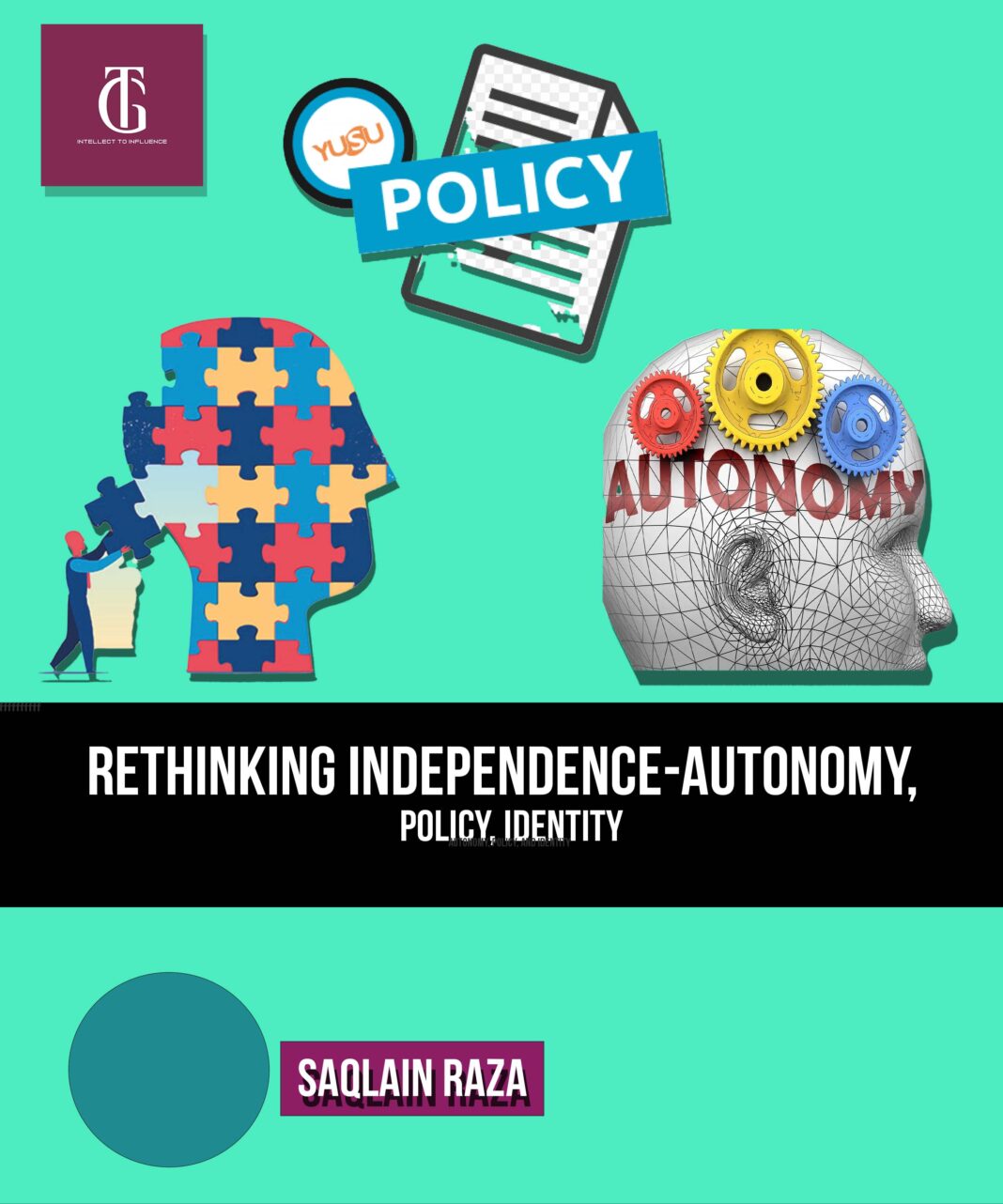” Leadership is the intelligent use of power.”
Pakistan and its political diaries are a very tightrope walk. Since its inception, post-colonial Pakistan remained either on colonial footprints or colonial-impeded inertia as baggage of history. Post-colonial inherited style of politics, post-colonial model of governance, and all politico-social, and politico-economic rationale largely remained on colonial nostalgia. Since its inception, the post-colonial Pakistan political economy largely remained at a Crossroads of foreign dependence and interdependence. Post-colonial foreign policy largely remained at the Crossroads of internal imbalanced power dynamics among de facto institutions and weak de jure civilians. Post-colonial independence largely remained dependent on the fluidity and liquidity of sovereignty over Various matters. Post-colonial democracy in Pakistan just remained up to the ritual of election and the ritual of parliamentary terms. Post-colonial Islamic state in Pakistan largely remained either on a fundamental aspect of religion or radical rife and the post-colonial civic ethics of Pakistan remained around a tightrope walk over relaxation and independence of minorities and civil liberties for minorities.
Meanwhile, visualizing all existing dynamics rethinking all existing models, and searching for Plato said philosopher king universality and utility in all aspects. Radical and pragmatic rethinking in all aspects is the need of hours. Since its inception political economy of Pakistan largely remained an economy of rent-seeking and just economy of superficial influx of boom and bust. Under the authoritarian cult of political demagogues and under all-time geo-strategic wheeling and dealing the state-craft of Pakistan mostly remains on the principle of rent-seeking based political economy. Dismantling, all previously existing models of rent-seeking and boom and bust they needed a more and more productive approach, more socially integrated approaches, and more communitarian approaches as well. Installment of natural productivity, installment of gendered progresses and installment of value-added aspects can only curb this superficial boom and bust and crisis of unproductivity in the economy. The installment of clear stability from politically motivated will can change the spectra of socially, politically, culturally, and economically isolated indicators with a rethinking of a productive economy as well.
Previously, viewing to post-colonial inherited institutionalized model
De-facto monopoly of Garrison State remained a primary aspect of policy design. Either over aspect of camp diplomacy or buffer in between great power rivalries garrison state construct and aspirations remained most dominant. From policy making to control over policy de-facto monopoly of deep institutions always prevailed by institution for institution. Dismantling the internal de-facto monopoly of institutions and external buffer conception and camp diplomacy rethinking approaches lies among the sovereign design of policy, neutrality of policy, and actualization of narrative and state interests in foreign policy. Previously, post-colonial independence largely remained polarized among partition archives and colonial inherited institutionalized Apparatus. Traditional, south Asian style of politics and politics of peer pressure and hostage factors remained a prominent aspect around Indian-centric factors. Viewing to Indian-centric factor as an existionalist threat the post-independence political strands largely remained motivated by geo-strategic wheeling and dealing and in between conflictual grounds. Rethinking independence approaches must have to lie among geo-economic, win-win-based relations and politics of porous borders to politics of cooperation.
Historically, Pakistan’s democracy just remained around the ritual of elections and just up to rituals of parliamentary procedure. Clear Garrison state authoritarian approach to the always de facto monopoly of Garrison state democracy just remained up to the house of cards and civilian leadership was just a manufactured and artificially groomed thing. Rethinking Pakistan’s democracy as a true Republican franchise truly lies in dismantling vendetta-led politics among civilians around the smooth transfer of power among civilians and a true charter of democracy among civilians. Rethinking approaches also lies among a pragmatic shift in the structure of existing political parties and among alternative narrative regardless of this existing feudal-cum dynasty-cum model of political parties.
Since objective resolution, the Islamic construct and Islamic roots are founded turning into the fundamental aspects and extremely radical aspects over the name and shame of religiosity. Post, Zia’s Islamic angle to ideologic governance as part of the state and religion as a part of the state Islamic angle largely used up over real-politic means. Rethinking Islam in Pakistan lies around the dismantling of religion as a real political tool of cultish, chest-thumping political leadership and the true use of religion as a Republican faith-based franchise and its clear manifestation.
Viewing to dynamics of civil liberties and civic ethics in Pakistan civil society remained the most marginalized subject under the oppression and suppression-based culture of the state and under the patriarchy of the state over culture, politics, economics, and religion. Popular culture sponsored by the state remained only the soul-policed aspect. Culturally much congestion and ethnically conflictual aspect remained the resultant product of state policing. Sometimes, extra moral policing from the state itself acted as a tool of oppression. State-led homogeneous models either over, cultural, political, economic, or religious grounds remained a most disturbing aspect of heterogeneous reality and unity in diversity. Rethinking approaches to the independence of minorities and marginalized communities lie among plurality, autonomy, decentralization, and civil liberties. Additionally, re-thinking of civic ethics and civic liberties lies around Gramscian-made civil society.
While, concluding as an objective aspect the autonomy, policy & identity of Pakistan remained as same as ritual is performed without understanding ritual philosophy. Autonomy either from political, social, cultural, or economic prospectus remained just over fluid construct, Policy making remained highly influenced by politically impeded inertia and identity over the mercy of a homogeneous state-created model. To seek true autonomy all aspects clearly need more and more decentralization and localization of autonomy. Rethinking, in all cadres of policy Making clearly needs political neutrality and actualization of rationale in policy. Rethinking identity clearly needs relaxation in all aspects and finding unity in diversity in installing a heterogeneous model.

Saqlain Raza
A medical graduate but an aspiring writer of political issues and public policy who previously wrote an essay for the planning commission of Pakistan wrote an essay for the national counter terrorism authority (NACTA) and an essay for a young writers essay contest for the Nation.
Gmail: muhammadsaqlainraza26@gmail.com






